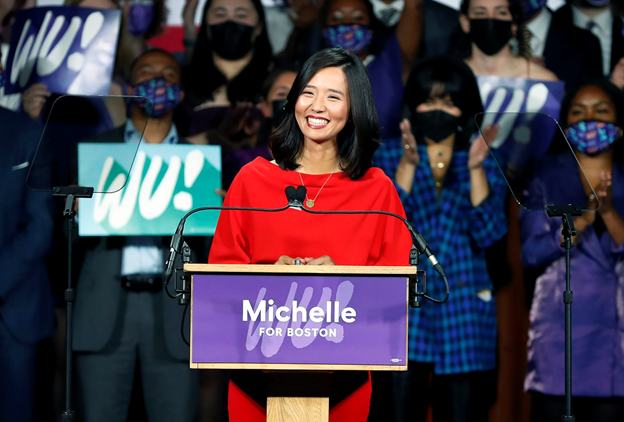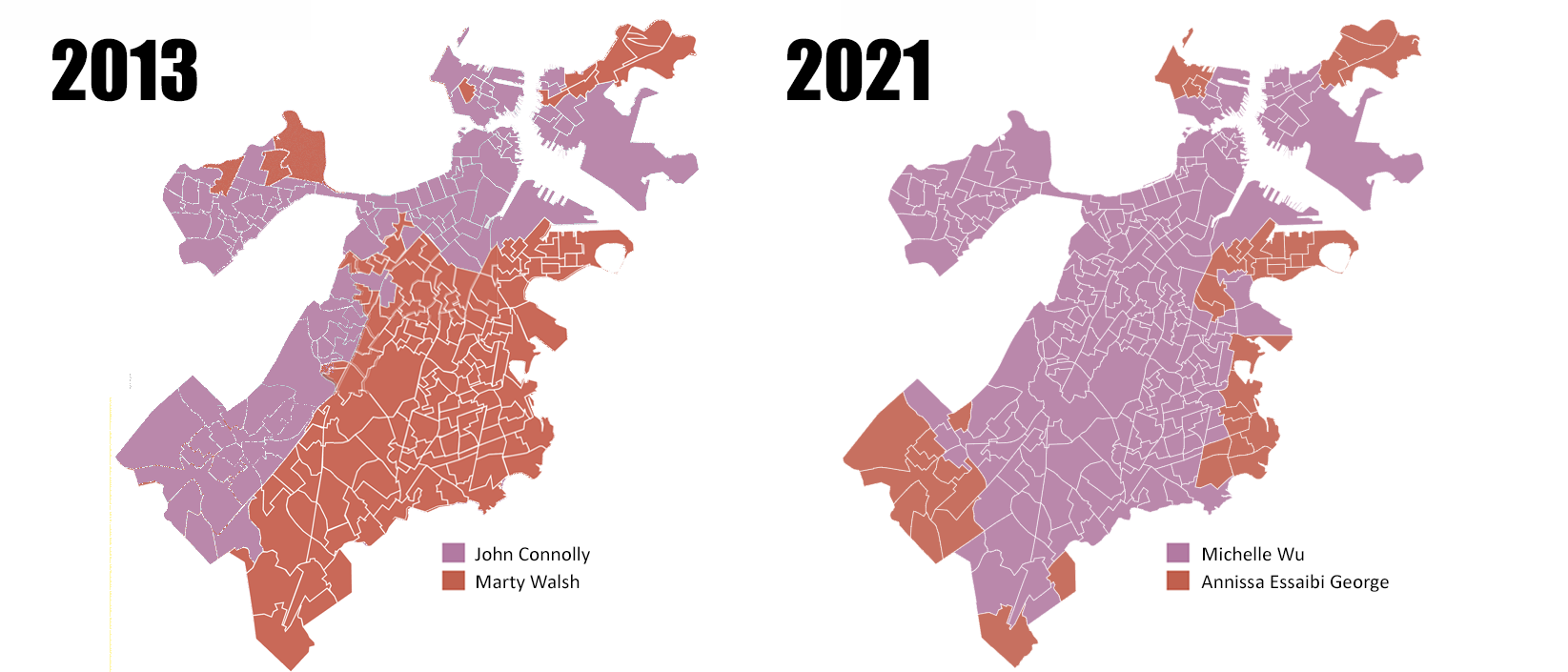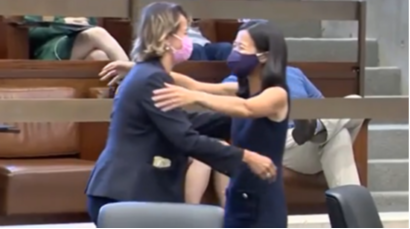
Mayoral race reshapes Boston’s political map
While much of the country saw a conservative backlash in Tuesday’s elections, Boston broke ranks and overwhelming opted for a more “progressive” mayor.
At-large City Councilor Michelle Wu will become the city’s first Asian-American mayor and the first woman and first person of color to be elected to the office. As soon as the results are certified, Wu succeeds fellow city councilor Kim Janey, who became acting mayor when Marty Walsh was tapped to serve as U.S. Secretary of Labor.
In a landslide win, Wu defeated a fellow at-large councilor, Annissa Essaibi George, with 68% of the citywide vote. Politically, Essaibi George was more closely aligned with former mayor Walsh, who remained popular throughout nearly two full terms in office. Walsh did not endorse in this race, but his mother Mary backed Essaibi George, even accompanying her to the polls on Election Day.
By national standards neither candidate would be called conservative. But Wu ran to Essaibi George’s left, espousing police reform and rent control, while Essaibi George courted union voters and echoed the more moderate views that had twice carried Walsh to victory.
This time Wu rolled up big margins across the city, winning nearly 19,000 more votes than Walsh ever did. In the process she not only held onto every precinct she had won in September’s preliminary election, but also took every precinct won by the four candidates eliminated in that preliminary while picking off eight more precincts from Essaibi George’s column.

In the process Wu redrew Boston’s political map. Just eight years ago, in the last open mayoral race, Walsh’s centrist posture united the city’s more conservative, working-class districts, while also drawing in Boston’s largely minority communities. This week it was the progressive, Wu, who scored high with minority voters, while capturing large swaths of the city that had previously lined up behind Walsh – including Walsh’s home precinct in South Dorchester.

In September, councilors Essaibi George and Wu shared a hug after both advanced to the general election.
Afterwards, Wu acknowledged that her opponent was “incredibly gracious” in defeat and said that Essaibi George would “continue to be a strong partner.” During the campaign both candidates showed a willingness to find a role for their opponent in their administration.
The Boston city council also shifted left with this election. Of the five new members to be seated in January, the city’s more progressive faction can claim at least three, including one Democratic Socialist.

